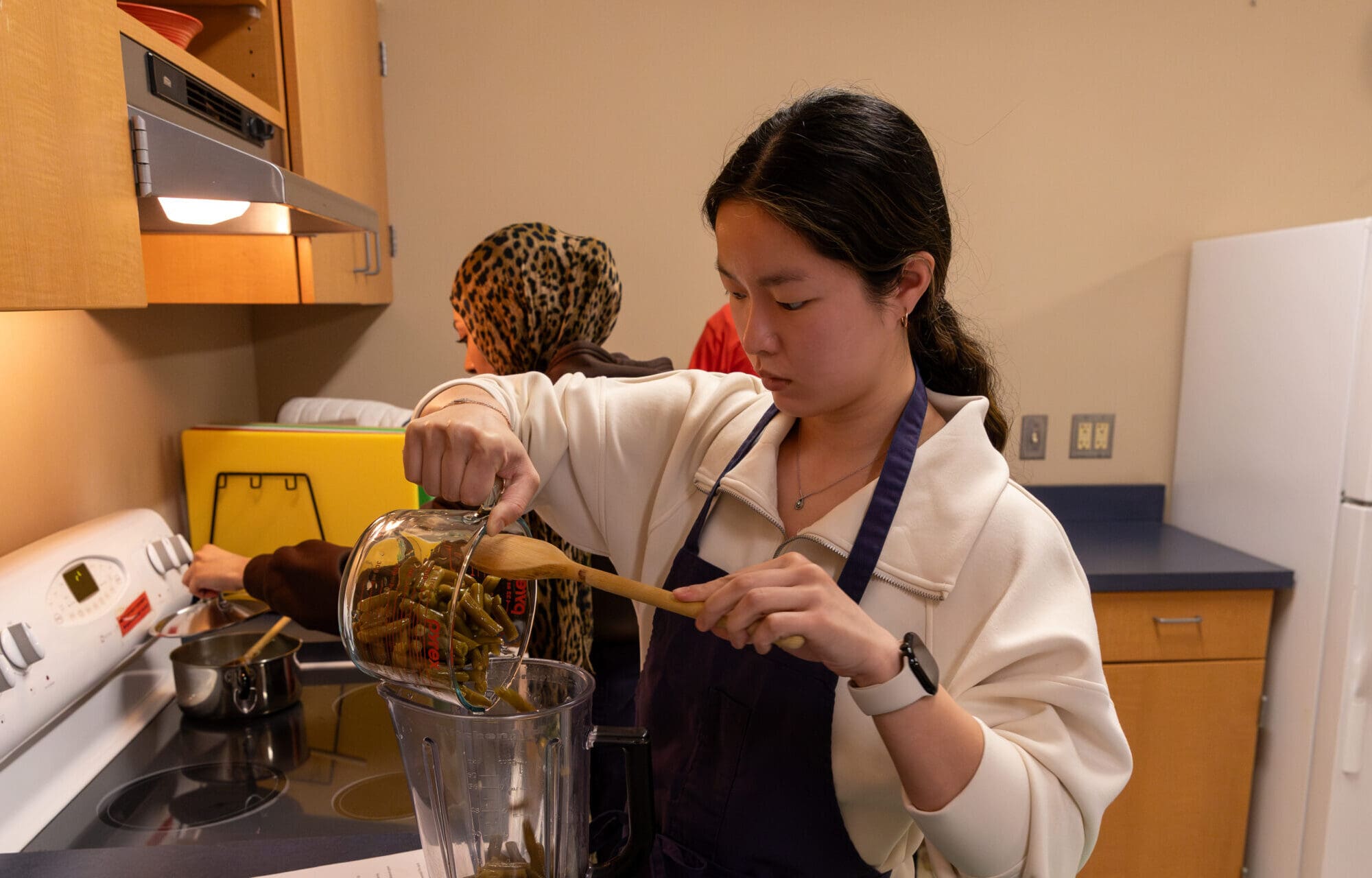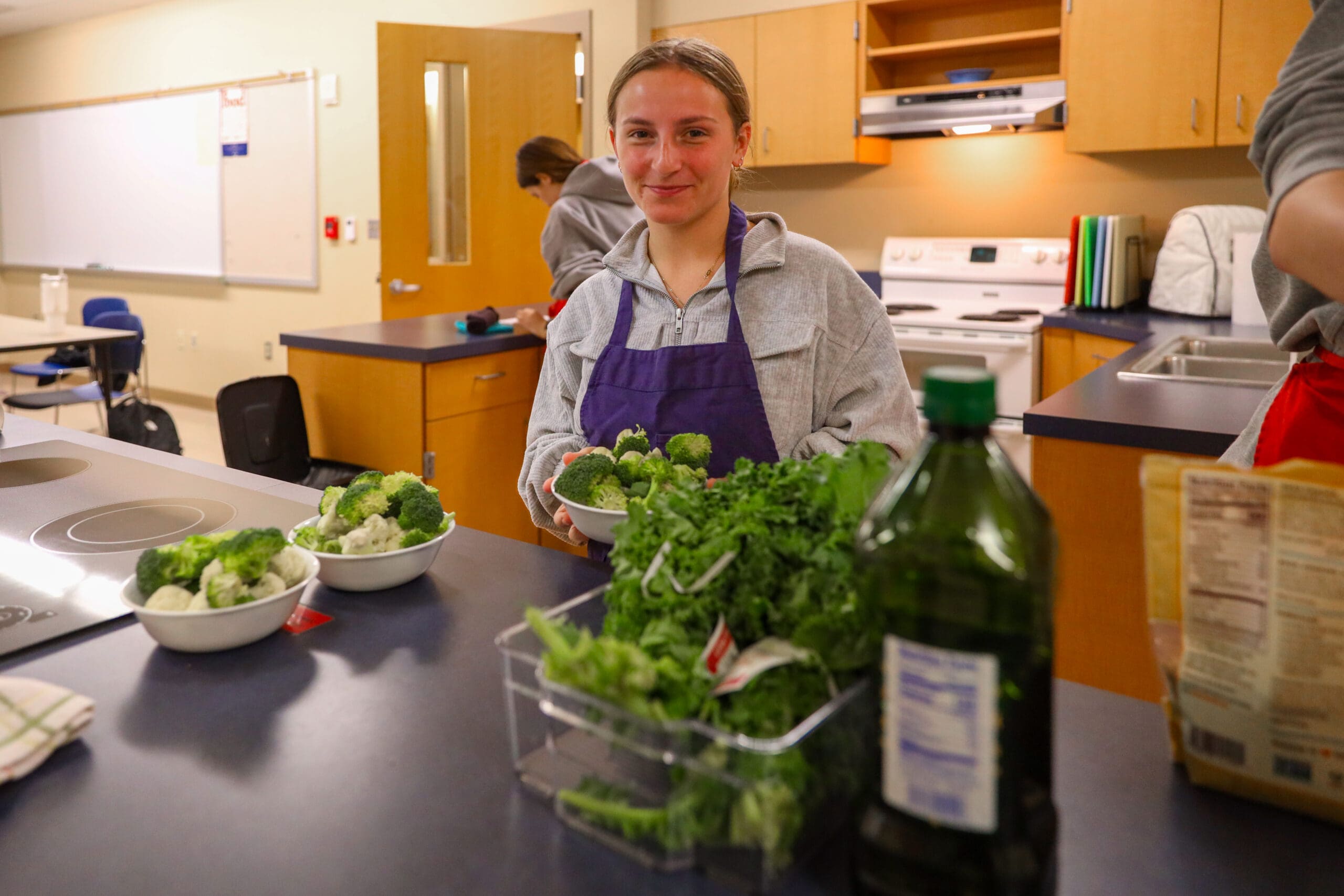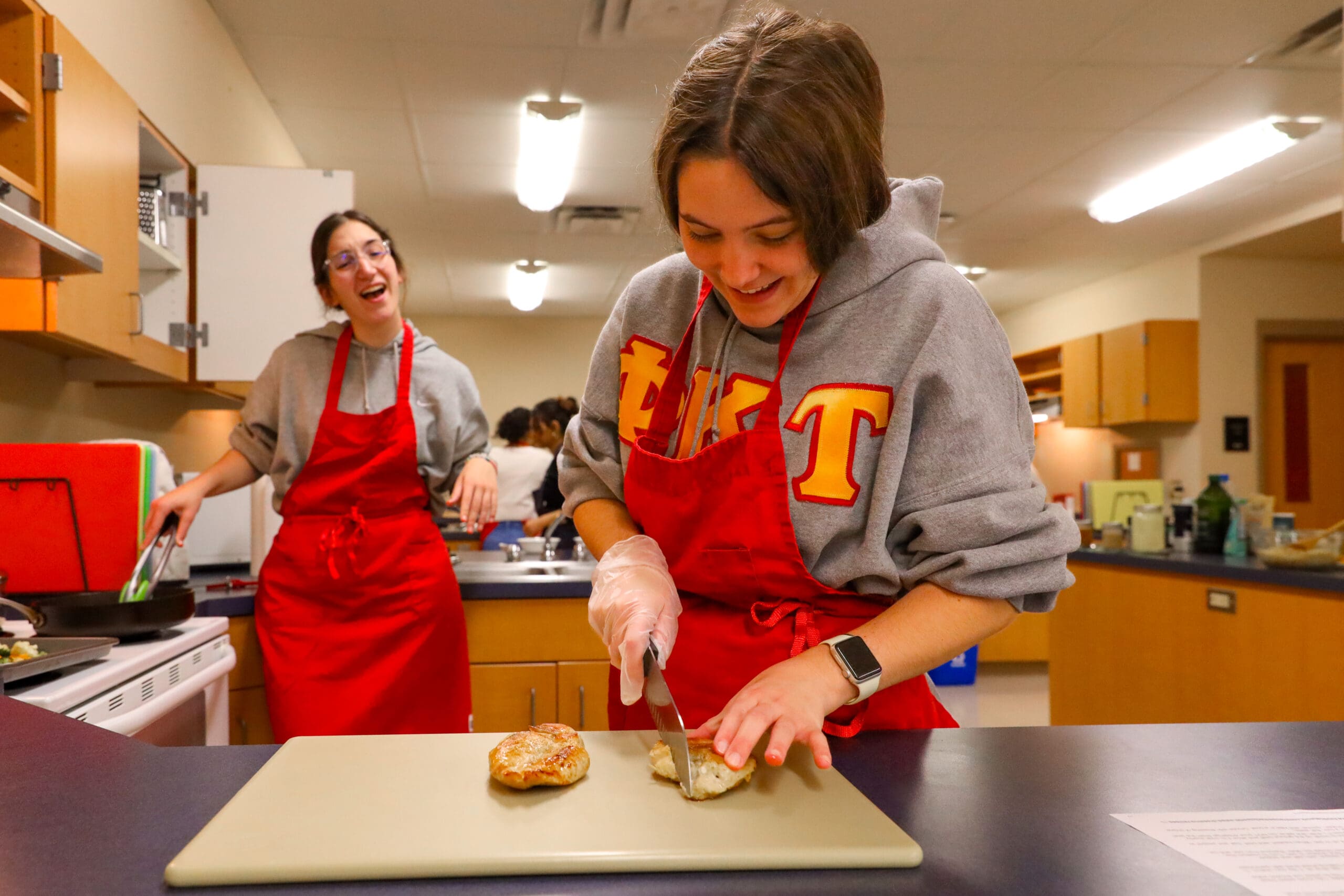Home / Academics / Programs / Major / Nutrition & Dietetics
Nutrition & Dietetics
As a Nutrition and Dietetics major, you’ll dive into the science of food, health, and wellness—gaining the knowledge to help individuals and communities make healthier choices. This program provides a strong academic foundation in dietary behaviors, nutrition science, and wellness, preparing you for the next step: a graduate-level dietetic internship and the national exam to become a registered dietitian.
If you’re passionate about helping others lead healthier lives, this is your path to a rewarding career in nutrition, healthcare, and beyond!
Experiential Learning
Your learning extends to research, community-focused projects and student organizations on campus. Peoria is home to several hospitals, nonprofit organizations focused on nutrition and food insecurity, and the USDA Agriculture Lab.
- Networking and leadership opportunities through the Student Dietetic Association
- Develop skills and research in our nutrition, counseling, and food laboratories as well as in the community at local schools, after-school programs, and community organizations
- Professional development and networking opportunities through the Central Illinois Academy of Nutrition & Dietetics
- All students complete one field-related internship
Program Details
Program outcomes data are available on request. The Didactic Program in Dietetics follows the requirements of the Accreditation Council for Education in Nutrition and Dietetics.
The Didactic Program in Dietetics (DPD) at Bradley University is accredited by the Accreditation Council for Education in Nutrition and Dietetics (ACEND): Address: Academy of Nutrition and Dietetics (AND); 120 S. Riverside Plaza, Suite 2190; Chicago, IL 61606-6995; 312-899-0040; eatright.org/ACEND
Effective January 1, 2024, the Commission on Dietetic Registration (CDR) will require a minimum of a master’s degree to be eligible to take the credentialing exam to become a registered dietitian nutritionist (RDN). In order to be approved for registration examination eligibility with a bachelor’s degree, an individual must meet all eligibility requirements and be submitted into CDR’s Registration Eligibility Processing System (REPS) before 12:00 midnight Central Time, December 31, 2023. For more information about this requirement visit CDR’s website: https://www.cdrnet.org/graduatedegree. In addition, CDR requires that individuals complete coursework and supervised practice in program(s) accredited by the Accreditation Council for Education in Nutrition and Dietetics (ACEND). Graduates who successfully complete the ACEND-accredited DPD program at Bradley University are eligible to apply to an ACEND-accredited supervised practice program.
Career Opportunities
Students in this major are prepared to apply for our Combined BS/MS 4+1 program in Nutrition & Dietetics to become Registered Dietitian Nutritionists (RDNs) or apply to another accredited graduate program.
- Clinical dietitians work in hospitals, cancer centers, long-term care facilities, and more in specialties including diabetes, cancer, pediatrics, eating disorders, and kidney disease.
- Community dietitians promote healthy eating and work for nonprofits, government agencies, clinics, and worksite wellness programs.
- Sports dietitians work with athletes to improve and maximize performance at colleges and universities, professional sports teams, and food and beverage companies.
- Foodservice dietitians provide nutritional care through foodservice operations in school systems, hospitals, long-term care facilities, and more.




